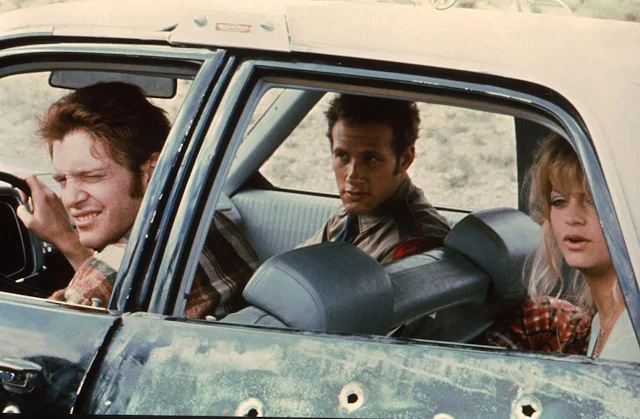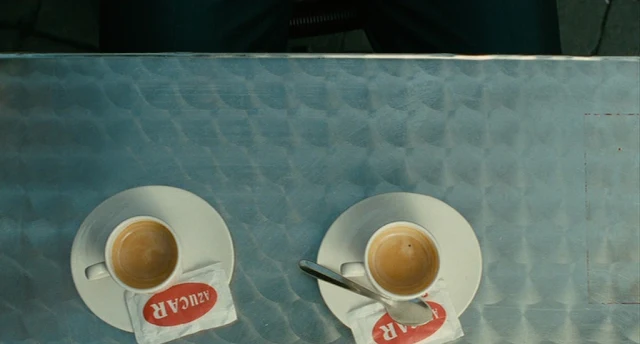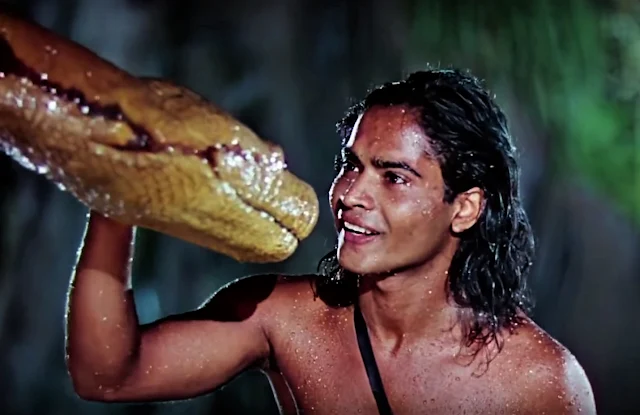 |
| Marlon Brando and Vivien Leigh in A Streetcar Named Desire |
A great American play with a great mostly American cast. Well, three quarters American isn't bad, if the British fourth quarter of the cast is Vivien Leigh, who gives one of the great screen performances, turning Blanche Dubois into a brilliant sparring partner for Marlon Brando's Stanley Kowalski. But each time I watch the film, I am drawn more and more to Kim Hunter's Stella, who has the difficult role of mediator between Blanche and Stanley. Hunter also superbly captures why Stella is so doggedly faithful to the brutal Stanley, a matter that may trouble us more in an age of heightened consciousness of domestic violence. Stella is deeply, carnally in love with the brute, but also aware of the tormented boy within him. There's no more telling scene than the morning after Stanley, in the notorious torn T-shirt, stands at the foot of the stairs bellowing "Stella!" and bringing her down from her retreat. Hunter demonstrates a full measure of post-coital bliss, looking as rumpled as the bed in which she's lying when Blanche arrives to waken her and is shocked by Stella's about-face. That's why, although the censors tried to eliminate any sense that Stella had forgiven Stanley at the end of the film, we know full well that she'll return to him. For the most part, the avoidance of the censors' strictures is deft, but they do eliminate some of the meaning of the rape scene -- that Stanley's only way to get the upper hand in the power struggle with Blanche is purely physical -- and they turn the ending of the film into somewhat of a dramatic muddle. If it's not a great movie, it's because the play, like most plays, was never intended to be a film. But it's still a great pleasure to hear these actors speaking some of the most potent lines ever written for the theater.


































